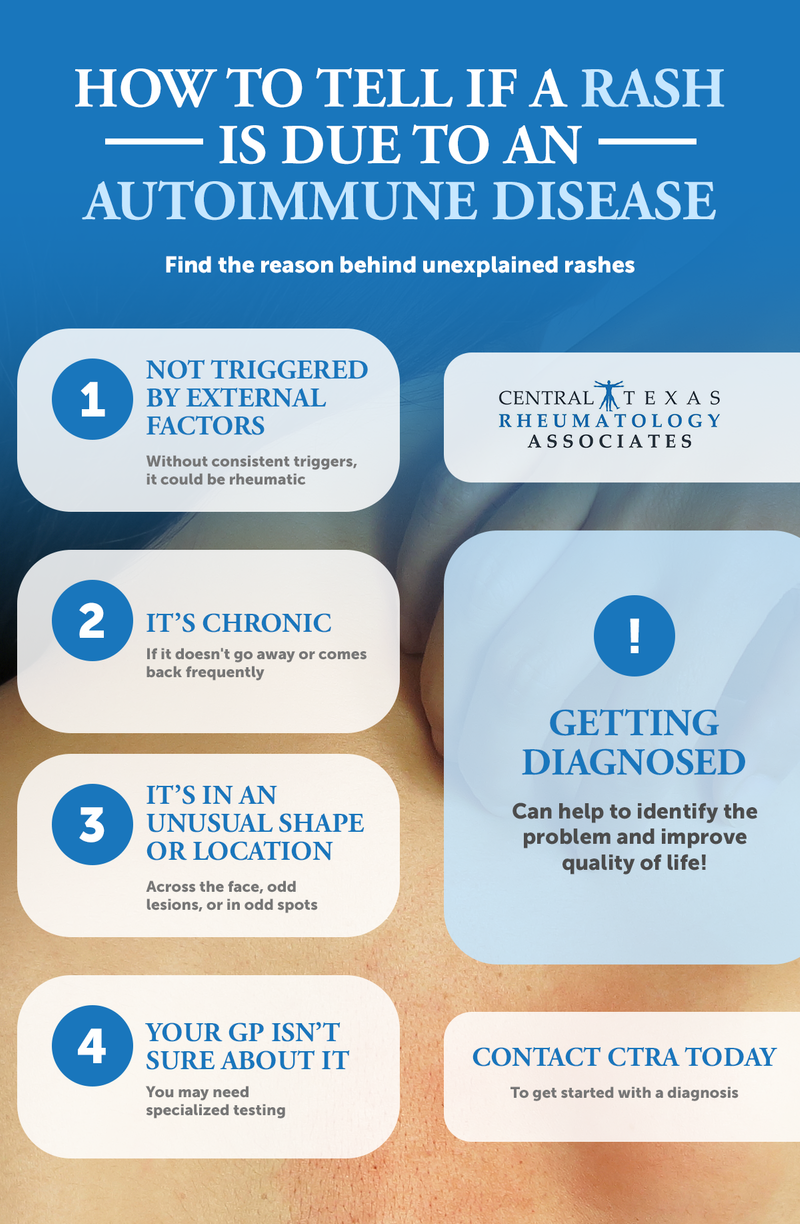When it comes to dealing with an autoimmune disease or a rheumatic disease, there are no two cases that will present exactly the same. This is because these diseases are caused by the body’s immune systems attacking internal structures as though they are foreign contaminants, and no two bodies are the same. If you’ve been suffering from an unexplained rash, you may be experiencing symptoms of an autoimmune disease, and here are some key aspects to look out for.

How To Tell If A Rash Is Due To An Autoimmune Disease


Not Triggered By Exterior Factors
One of the most telltale signs that a rash is a symptom of an autoimmune disease is if the rash has no clear trigger or cause. Try to keep track of when the rash shows up and any potential triggers, like stress, environment, sun or cold exposure, and more. If you cannot consistently link the rash to one of these potential causes, it may be a sign of an autoimmune disease.

It’s Chronic
If the rash you’ve been experiencing is chronic, you’ll see it either grow or wane but it may not go away altogether or it may go away and then come back. Chronic rashes can be signs of autoimmune diseases as an outward indicator of the body attacking itself.

It’s in an Unsual Shape or Location
One of the signature symptoms of lupus, an autoimmune disease that is fairly common, is an unsual, butterfly-shaped rash across the face. This kind of unusual shape or other unusual appearances in a rash can indicate tht a person is suffering from an autoimmune disease.

Your GP Isn’t Sure About It
Of course, if you’ve already seen a general practitioner about your rash and simple treatments or at-home remedies don’t seem to be working, it’s important to visit a specialist who may be able to recognize the rash as a symptom of an autoimmune disease.
If you think you have an autoimmune disease or rheumatic disease, it’s important to see a specialist and get started on treatment. These conditions can affect the organs, immune system, and entire body, negatively impacting your quality of life or ability to function, so working with a specialist at Central Texas Rheumatology Associates can help you get the care and treatment you need to live a healthier life!
